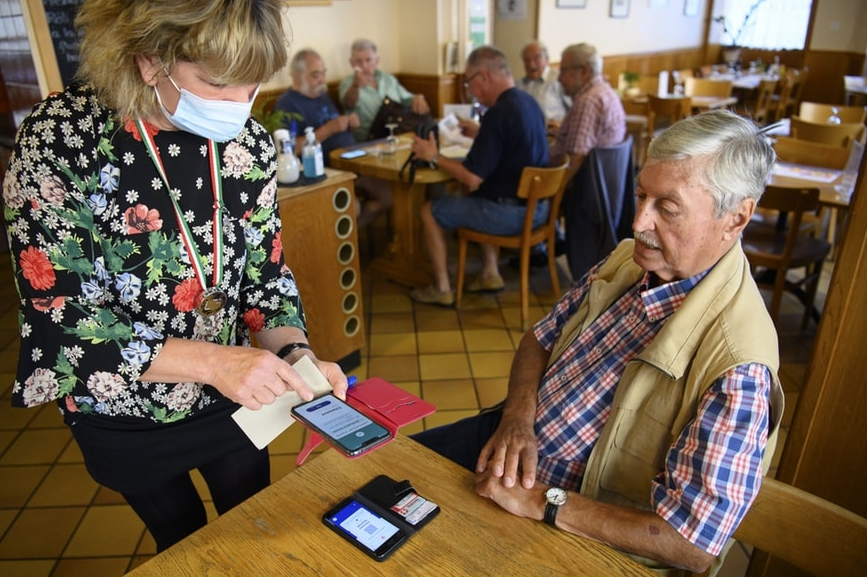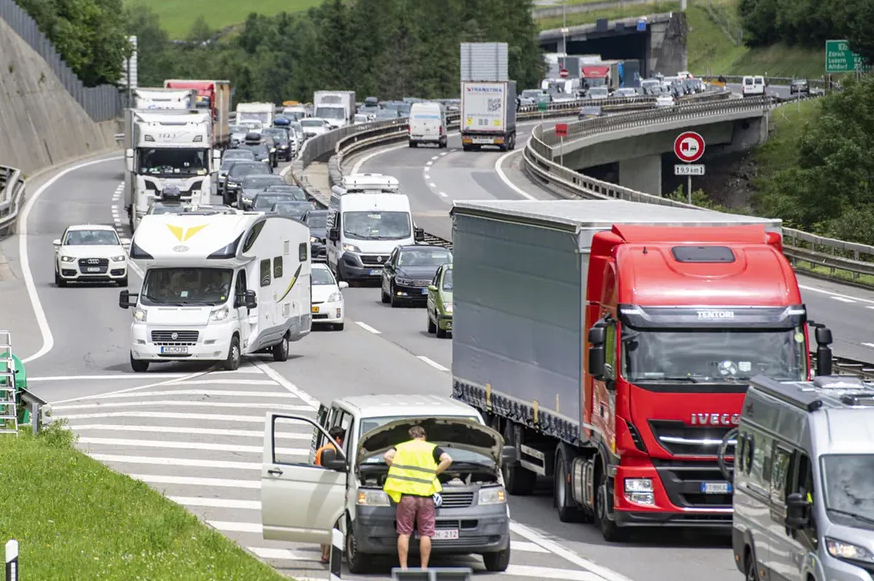Checking a Covid certificate in a Lausanne café in September Keystone / Laurent Gillieron While most Swiss hotels and restaurants are critical of the need to show a Covid certificate, overall small and medium-sized enterprises (SMEs) do not perceive it as a disadvantage. A survey of 201 SMEs in German-speaking Switzerland found that 58% of managers in the hotel and catering industry described the consequences of the certificate as negative to very negative. Since September 13, Swiss residents have had to show a Covid certificate (which provides proof of vaccination, recovery or a recent negative test result) to access indoor spaces like restaurants, bars and museums. However, 39% of all respondents viewed the certificate as positive to very positive and 36% said
Topics:
Swissinfo considers the following as important: 3.) Swissinfo Business and Economy, 3) Swiss Markets and News, Featured, Latest News, newsletter
This could be interesting, too:
Nachrichten Ticker - www.finanzen.ch writes Die Performance der Kryptowährungen in KW 9: Das hat sich bei Bitcoin, Ether & Co. getan
Nachrichten Ticker - www.finanzen.ch writes Wer verbirgt sich hinter der Ethereum-Technologie?
Martin Hartmann writes Eine Analyse nach den Lehren von Milton Friedman
Marc Chandler writes March 2025 Monthly
While most Swiss hotels and restaurants are critical of the need to show a Covid certificate, overall small and medium-sized enterprises (SMEs) do not perceive it as a disadvantage.
A survey of 201 SMEs in German-speaking Switzerland found that 58% of managers in the hotel and catering industry described the consequences of the certificate as negative to very negative.
Since September 13, Swiss residents have had to show a Covid certificate (which provides proof of vaccination, recovery or a recent negative test result) to access indoor spaces like restaurants, bars and museums.
However, 39% of all respondents viewed the certificate as positive to very positive and 36% said the effects for their own company were neither good nor bad, the Zurich University of Applied Sciences (ZHAW) said on WednesdayExternal link.
The sixth online survey of the Coronavirus SME Panel was conducted from September 15-26.
Supply chain problems
According to the survey, 27% of the companies questioned had had to lay off employees, the majority because of the Covid pandemic. The machinery and electrical industries, service industries such as travel agencies and retail trade had been affected in particular.
A fifth of companies said layoffs in the next 12 months were probable or very probable.
However, 39% of the companies saw the future as neutral, and 23% even had a positive outlook. Two-thirds assessed the demand for products and services as good to very good.
The availability of raw materials and semi-finished products was seen as rather poor or even existence-threatening by 51% of SMEs. This value is higher than in March 2020.
Overall, 43% of the companies surveyed had claimed a Covid loan guaranteed by the government. Two-thirds of these SMEs said they had not yet repaid it in full. What’s more, 7% said they would never be able to do so.
Tags: Featured,Latest news,newsletter









